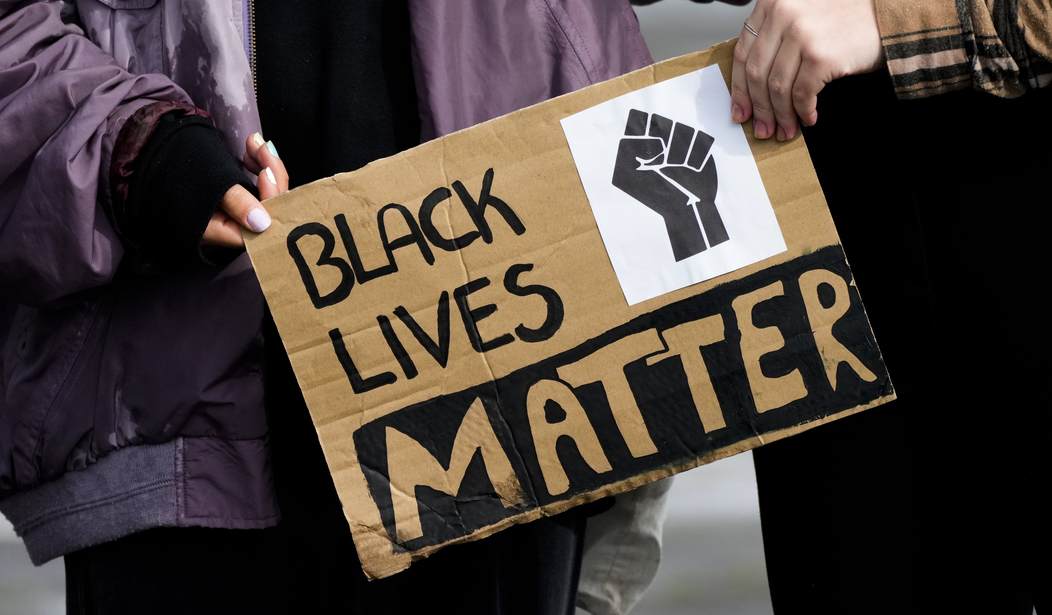These days, “black oppression” is a tactic used in dirty politics. But in my early life, it was very real. The Jim Crow days were a landscaped wilderness between slavery and freedom – a mirage of freedom.
But I’ll spare the stories. It’s over. Holding on to that stuff is like walking around with a corpse on your back. Drag it around for too long and your soul rots from moral gangrene – a spirit of revenge if you have power; a spirit of resentment if you don’t. If you have both, you become Maxine Waters. So, no.
During the civil rights days, any time MLK wanted to give Southern blacks hope that freedom would come someday, he used the imagery of the Hebrew slaves escaping Egypt, enduring the wilderness, and finally reaching the Promised Land.
“We’ve got some difficult days ahead,” said this modern-day Moses. “But it doesn’t matter with me now. Because I’ve been to the mountaintop. … And I’ve seen the Promised Land. I may not get there with you. But I want you to know tonight that we, as a people, will get to the Promised Land.”
Today, 156 years after the death of slavery and after Jim Crow’s been a corpse for 56 years, the question of whether American blacks have reached the “Promised Land,” remarkably, depends on whom you ask.
It reminds me of the real Moses who was famous for his headaches while leading ex-slaves with two different attitudes toward their predicament. Most saw the glass as half empty; a few, half full.
Ex-slaves who saw the glass as half empty died in the wilderness. All of them. God Himself wouldn’t put up with their incessant complaining and protests. For the rest, a trip that could’ve taken 11 days, took 40 years. Why? Because too many of them, although free, still thought and acted like slaves.
Recommended
In Numbers 13:21, the Hebrews were on the outskirts of Canaan, the Promised Land, a land “flowing with milk and honey.” Moses sent spies to check it out and bring word back. Discouraged men, after seeing the gargantuan challenges, brought back an “evil report” – fake news from the Canaan News Network (CNN).
“We be not able to go up against the people,” they said. “For they are stronger than we.” The people of that land are giants and “we were in our own sight as grasshoppers, and so were we in their sight.”
Caleb and Joshua disagreed. With God on their side, the Hebrews were the real giants, they said.
“Let us go up at once, and possess it,” said Caleb, “for we are well able to overcome it.”
But the people – distracted by uncertainty, suffering without luxuries, enough water only to stay alive, and monotonous food – surrendered to a slave’s mentality. So the “we be not able” crowd split from the “we are well able” crowd.
They complained against Moses, protested against God, and picketed for the Hebrews to “make a captain” who could lead them back to the government that enslaved them. That wasn’t an option. They died in the wilderness between Egypt and the Promised Land.
Hebrews who refused to give in to the slave mentality went on to clumsily influence the course of history. To this day, the progeny of these Hebrew ex-slaves – the Jewish people – prosper far beyond their numbers while facing down deep hatred. And they prosper without the incessant complaining, protesting, and excuse-making that got their ancestors stuck in the wilderness. Lesson learned.
Blacks are in a similar predicament today – the discouraged ones. But it’s much stranger. They’re stuck in a self-imposed wilderness inside a “Promised Land” flowing with more milk and honey than any nation in history. And they’re free.
But they’ve “made captains” who create imaginary impediments that they say still enslave blacks in America. “You be not able,” they say. These are critical race theorists, anti-racists, and BLMers who have no incentive to give up the slave mentality because, rather than being punished, their bickering gets rewarded.
So they’ve built a Wilderness Industry – people and organizations skilled at making complaints, protests, and excuses bloom in the desert. There are workshops, degrees, jobs and careers, how-to books, political and social acclaim, and big money. Worse, they’re using the Wilderness Industry to put the rest of us in slavery.
“Antiracism is a transformative concept that reorients and reenergizes the conversation about racism,” writes Ibram X. Kendi in How To Be An Antiracist,” (2019), whose speeches earn $20,000. “At its core, racism is a powerful system that creates false hierarchies of human value; its warped logic extends beyond race, from the way we regard people of different ethnicities or skin colors to the way we treat people of different sexes, gender identities, and body types.”
Get that? Me either. But I think he’s saying: “All whites are racists. The ‘system’ is racist. It always will be. So we must dismantle it.”
The Wilderness Industry has created new terms and tactics, not to solve problems, but to dignify resentment, hide the real causes of disparities, and spread the slave (victim) mentality to as many discouraged groups as possible.
Here’s a morsel you’ll find in Critical Race Theory (Third Edition), by Richard Delgado and Jean Stefancic (2017):
Critical race theorists “urge jury nullification to combat the disproportionate incarceration of young black men,” the authors write. “If the jury believes that the police system is racist or that the young man is of more use to the community free than behind bars, it will vote to acquit.”
Never mind that the crime, especially violent crime, that young black men commit is wildly disproportionate. But facts don’t matter. These people are not paid to solve problems; they’re paid to come up with flatulent terms that make complaining sound intelligent. Like, internal colonialism, interest convergence, language rights, Anglo-centric standards, counterstorytelling, differential racialization, blah, blah.
Meanwhile, in troubled black neighborhoods, cultural cancer metastasizes to Stage IV. Since it’s become unfixable, these new overseers stay busy building towers of racial babel using jerry-rigged words that cover up the real mess.
Yet, no matter how many people suffer, they are somehow insulated from accountability as they deliberately wander in a fake wilderness advocating for hordes of discouraged blacks to be shipped onto government doles – the new slavery.
The old slavery is dead. Jim Crow is a corpse. But the slave mentality thrives.

























Join the conversation as a VIP Member